Jamaica’s musical tapestry weaves a vibrant story, as reggae’s rhythmic beats and dancehall’s high-energy melodies have captured hearts worldwide. In this riff on Jamaican musical genres, we follow its evolution…
From the island’s early influences and origins to the rise of contemporary fusion genres, the evolution of Jamaican music showcases a rich history shaped by cultural diversity and artistic brilliance.
Introduction to Jamaican Music Genres
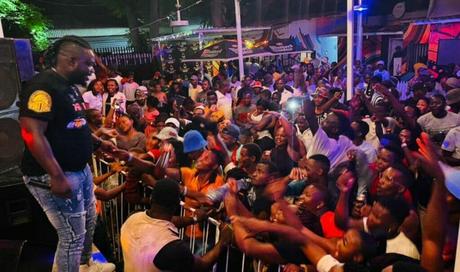
Jamaica, known for its vibrant culture and musical heritage, has contributed a wide range of musical genres to the world. Reggae’s rhythmic beats and dancehall’s high-energy music have both captured listeners all over the world. The development of Jamaican musical subgenres is a fascinating journey that sheds light on the island’s rich history and cultural influences that have molded its musical environment.
Early Influences and Origins
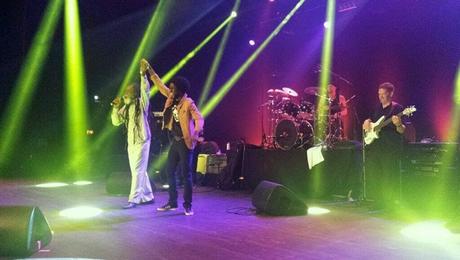
To understand the evolution of Jamaican music genres, we must delve into their early influences and origins. The musical landscape of Jamaica was shaped by a fusion of African, European, and Caribbean traditions. The African influence brought rhythmic patterns, drumming techniques, and call-and-response vocals, while European and Caribbean influences introduced instruments such as the guitar, piano, and brass instruments.
In the early days, mento, a traditional Jamaican music style, blended these diverse musical elements, incorporating catchy melodies, banjo rhythms, and humorous lyrics. This laid the foundation for future Jamaican music genres to flourish. The influences of jazz, rhythm and blues, and American popular music also found their way to the island, contributing to the melting pot of sounds that would later define Jamaican music.
Development of Reggae
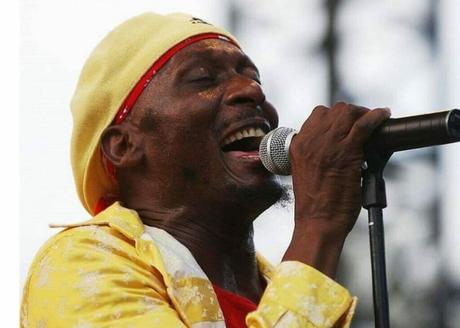
One of the most renowned and beloved Jamaican music genres is reggae. Emerging in the late 1960s, reggae evolved from earlier genres like ska and rocksteady. The iconic rhythms and melodic basslines of reggae became synonymous with the spirit of Jamaica. The laid-back tempo and distinctive offbeat guitar accents gave reggae its characteristic groove, inviting listeners to sway to its infectious rhythm.
Reggae music developed into a potent vehicle for conveying social and political themes in addition to being a form of entertainment. Many famous artists, like Jimmy Cliff, Peter Tosh, and Bob Marley, have used their music as a platform to advance social justice, world peace, and unity. Reggae, with songs like “One Love” and “Get Up, Stand Up,” became a voice for the oppressed and an anthem for change.
Rise of Dancehall
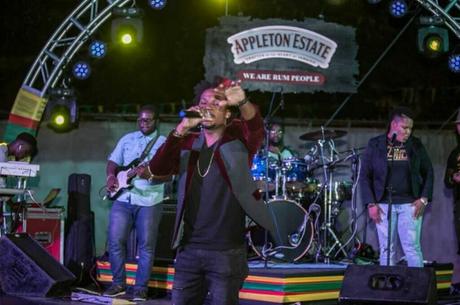
Dancehall, a new kind of Jamaican music, gained popularity in the 1980s. With its energetic beats, catchy hooks, and rapid-fire lyrics, dancehall captured the attention of both local and international audiences. Dancehall music often addresses social issues, celebrates Jamaican culture, and provides an avenue for self-expression.
The rise of dancehall brought forth a new generation of talented artists who pushed boundaries and redefined the sound of Jamaican music. Shabba Ranks, Buju Banton, and Beenie Man became prominent figures in the dancehall scene, captivating audiences with their unique vocal delivery and infectious stage presence. Dancehall’s lively and exuberant nature reflected the vibrant spirit of Jamaica, and its popularity soared both in the Caribbean and beyond.
Fusion of Dancehall with International Genres:
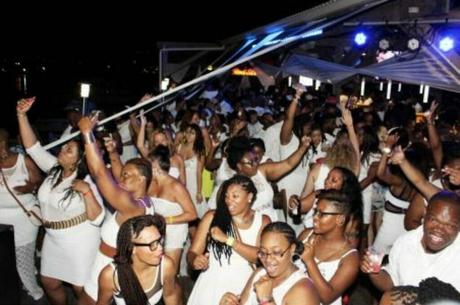
- Dancehall’s Evolution: Dancehall, originating in Jamaica in the late 1970s, is a genre that emerged from reggae. It features faster rhythms, electronic sounds, and often explicit lyrics. Over time, dancehall has evolved and incorporated elements from various international genres, resulting in exciting musical fusions.
- Dancehall and Hip-Hop: Dancehall’s influence on hip-hop has been particularly notable. Artists like Sean Paul, Shaggy, and Beenie Man have collaborated with hip-hop artists, creating crossover hits that blend the infectious rhythms of dancehall with rap and R&B. This fusion has introduced dancehall to a wider global audience, while also contributing to the diversity of hip-hop.
- Dancehall and EDM: Dancehall’s energetic beats and catchy melodies have also found their way into the realm of electronic dance music (EDM). Producers and DJs have embraced dancehall’s infectious grooves, incorporating them into their tracks and remixes. This fusion has resulted in vibrant collaborations between dancehall artists and EDM producers, creating a dynamic blend of genres that appeals to both dancehall and EDM enthusiasts.
- Cultural Exchange: The fusion of dancehall with international genres has not only impacted the music but has also facilitated cultural exchange. Collaborations between Jamaican and artists from other nations have made it possible to exchange artistic viewpoints, experiences, and techniques. A higher awareness for many musical traditions has resulted from this idea-cross-pollination process, which has given rise to new sounds and inventive production techniques.
Contemporary Fusion Genres
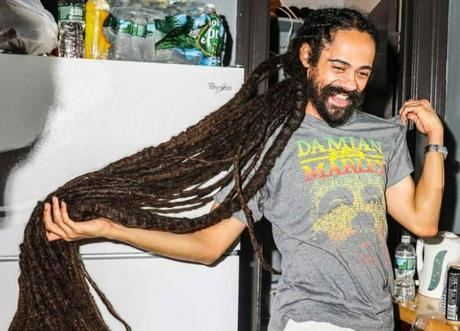
As Jamaican music continued to evolve, contemporary fusion genres emerged, incorporating elements from various musical traditions. To create a fresh and intriguing sound, these genres mix influences from reggae, dancehall, hip-hop, R&B, and other genres. Artists like Sean Paul, Damian Marley, and Chronixx have successfully blended genres, breaking down musical barriers and appealing to a global audience.
In addition to broadening the aural spectrum of Jamaican music, this combination of forms has given musicians a platform to experiment and go into uncharted creative waters. The result is a rich tapestry of sounds that infuse Jamaican music with a global appeal while still maintaining its distinct Caribbean flavor. These contemporary fusion genres continue to push the boundaries of Jamaican music, ensuring its relevance and longevity in the ever-evolving world of music.
Impact of Reggae on World Music:
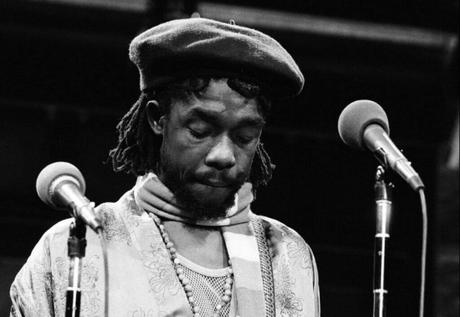
- Global Recognition and Influence: Reggae, with its laid-back rhythms, powerful lyrics, and distinct sound, has made a significant impact on world music. Reggae, which originated in Jamaica in the late 1960s, quickly gained popularity and has since spread around the world. It has influenced various musical styles and artists worldwide, transcending cultural boundaries and inspiring countless musicians.
- Social and Political Impact: Reggae’s roots lie in the struggle and resilience of the Jamaican people, particularly those living in impoverished areas. The genre often addresses social and political issues, advocating for peace, equality, and justice. Famous musicians like Bob Marley and Peter Tosh utilized reggae as a platform to promote civil rights, anti-colonialism, and awareness of social injustices. The powerful messages conveyed through reggae music have inspired activism and sparked social movements worldwide.
- Genre Diversification: Reggae’s impact extends beyond its own genre. It influences a wide range of musical genres, including pop, rock, hip-hop, and electronic music. Artists from different backgrounds have incorporated reggae elements into their music, creating a fusion of styles and contributing to the evolution of genres. Reggae’s distinctive rhythm guitar, bass lines, and offbeat accents have become recognizable and sought-after elements in many contemporary productions.
- Cultural Exchange and Tourism: Reggae’s popularity has attracted music lovers from around the world to Jamaica, leading to increased cultural exchange and tourism. Each year, thousands of people attend Reggae Sumfest, one of the top reggae festivals in the world, creating a vivacious atmosphere of music appreciation and celebration. Jamaican artists have also embarked on international tours, spreading reggae’s positive vibes and contributing to the growth of the global music industry.
Notable Jamaican Artists and Their Contributions:
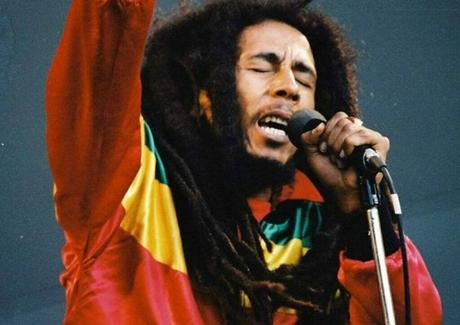
- Bob Marley: Bob Marley is undoubtedly one of Jamaica’s most iconic musicians and a global reggae legend. His soul-stirring lyrics, smooth vocals, and charismatic stage presence brought reggae music to the forefront of international attention. Bob Marley’s songs such as “One Love,” “No Woman, No Cry,” and “Redemption Song” have become anthems for peace, love, and unity, and they continue to inspire new generations of musicians all around the world.
- Sean Paul: Sean Paul is a Jamaican dancehall artist who achieved significant commercial success, taking dancehall music to mainstream audiences. With tracks like “Get Busy,” “Temperature,” and “Gimme the Light,” Sean Paul effectively combined dancehall with pop, hip-hop, and R&B, earning him multiple Grammy Awards and making him a household celebrity.
- Beenie Man: Beenie Man is a Jamaican dancehall artist known for his lyrical prowess and energetic performances. He has made substantial contributions to the genre with hits such as “Who Am I (Sim Simma)” and “Dude.” Beenie Man’s unique style and ability to connect with diverse audiences have solidified his status as one of dancehall’s most influential artists.
- Sister Nancy: Known as the “First Lady of Dancehall,” Sister Nancy broke barriers as one of the first female dancehall artists. Her iconic track “Bam Bam” became a dancehall anthem and continues to be sampled and revered in various music genres. Sister Nancy’s boldness and lyrical skill opened doors for many female artists in the male-dominated dancehall industry.
- Chronixx: As a prominent figure in the reggae revival movement, Chronixx has revitalized traditional reggae while adding contemporary elements to his music. His conscious lyrics and soulful voice resonate with a younger generation, addressing social issues and uplifting messages. Chronixx’s album “Chronology” garnered critical acclaim and solidified his reputation as a leading force in modern reggae.
FAQ
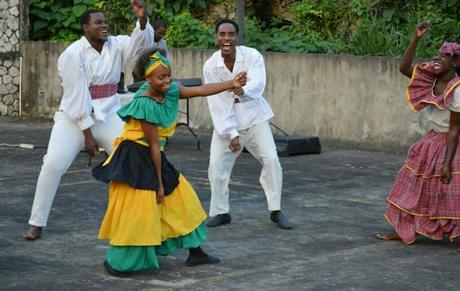
How Did Jamaican Music Evolve?
Jamaican music evolved through a unique blend of African, European, and Caribbean influences. It originated from traditional Jamaican folk music, mento, and then progressed to genres like ska and rocksteady. The iconic genre of reggae emerged in the late 1960s, characterized by its rhythmic basslines and socially conscious lyrics. Dancehall, with its energetic beats and rapid-fire lyrics, rose to prominence in the 1980s. Contemporary fusion genres now incorporate elements from reggae, dancehall, hip-hop, and R&B, showcasing the ongoing evolution of Jamaican music.
What Is The History Of Jamaican Music?
Jamaican music has a long history that is strongly ingrained in the island’s unique cultural traditions. It traces back to the influences of African, European, and Caribbean musical traditions. Early genres like mento and calypso laid the foundation, while ska, rocksteady, and reggae propelled Jamaican music onto the global stage. Throughout history, Jamaican music has served as a forum for social critique and cultural expression, reflecting the trials, successes, and tenacity of the Jamaican people.
What Type Of Music Developed In Jamaica?
Jamaica has given birth to various influential music genres. Traditional Jamaican folk music known as mento laid the groundwork, while ska, rocksteady, and reggae became iconic genres. Reggae, with its distinctive rhythm and socially conscious lyrics, gained international acclaim through artists like Bob Marley. Dancehall, characterized by energetic beats and rapid-fire lyrics, emerged in the 1980s. Jamaican music is still developing, with modern fusion genres fusing aspects of reggae, dancehall, hip-hop, and R&B, displaying the music industry’s continued inventiveness and invention.

